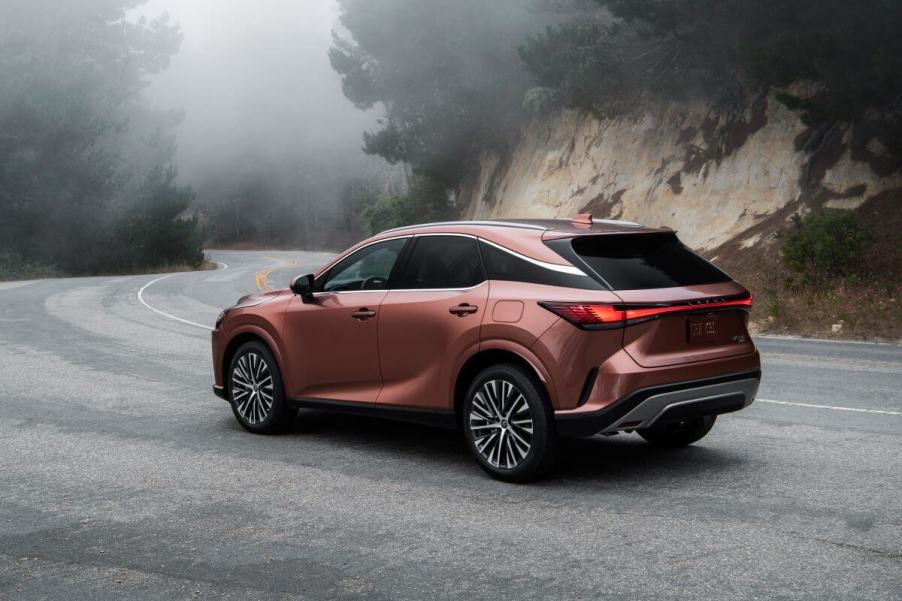
The Only 2 Luxury Car Brands to Buy if You’re Keeping the Car 4+ Years
There are many factors to consider when buying a luxury car. Every prospective buyer has different needs and prioritizes various factors. However, one universal aspect that everyone must consider is reliability. Reliability is an essential consideration for any prospective buyer as it determines the frequency and cost of repairs and maintenance, affecting a luxury car’s long-term ownership experience.
A recent tweet from CarDealershipGuy suggested that if you want to avoid expensive repairs and keep your car for a long time, you should consider Japanese brands like Lexus or Acura. However, if you’re looking for something more exciting to drive and plan to keep the car for a short amount of time, European brands like BMW, Porsche, Audi, Land Rover, or Mercedes-Benz might be more appealing. This tweet raises an interesting point about the intersection of luxury, reliability, and cost, and it’s worth exploring.
European luxury cars
European marques are known for manufacturing some of the most luxurious and high-performing vehicles on the market. European cars offer drivers a sense of prestige and refinement that is hard to match, with high-end features and impeccable attention to detail. However, European luxury cars come at a high price point, and in addition to the initial cost, they are expensive to maintain and repair.
These cars have impressive power and acceleration, good handling, and luxurious interiors. Yet, emphasizing luxury and performance over reliability means they can be more prone to breakdowns and costly repairs. As a result, European cars may not hold their value as well as Japanese cars over the long term, but the trade-off is often top-tier quality and unparalleled driving experience.
Japanese luxury cars
Japanese luxury cars are renowned for their exceptional build quality and reliability. They prioritize functionality and practicality over flamboyance, sacrificing some looks and performance in exchange for reliability and security.
Japanese luxury cars may not be as fast or handle as well as their European counterparts. However, they tend to cost less, last longer, and seldom require maintenance, making them ideal for the budget-conscious buyer. Their durability also results in a higher resale value than European luxury cars.
Japanese luxury cars generally have good gas mileage and produce lower emissions, contributing to a greener planet. They can run over 250,000 miles, making them an excellent investment for prospective buyers who want long-term value.
According to the What Car? Reliability Survey on MotorTrader, six of the top 10 most reliable brands were Japanese, with Lexus taking the top position, followed by Mitsubishi, Toyota, and Suzuki.
Which luxury car brand has a long lifespan?

Are you in the market for a luxury car you plan to keep for a while? Japanese brands trump European ones for a better long-term ownership experience. Japanese vehicles are typically less expensive initially, tend to last longer, and require less frequent and less costly maintenance. They also generally offer better fuel efficiency and a higher resale value if you choose to sell them in the future.
If you’re interested in Japanese luxury cars, two of the most reliable brands are Lexus and Acura. Both offer a range of models with various features and price points, so you’re sure to find one that fits your needs and budget. Here are some of the most popular models from each brand:
- Lexus: 2023 Lexus RX, 2023 Lexus NX, 2022 Lexus LX, 2023 Lexus ES, 2023 Lexus UX
- Acura: 2023 Acura MDX, 2023 Acura Integra, 2023 Acura RDX, 2023 Acura TLX, 2022 Acura NSX
There are nuances and exceptions to everything
European luxury cars have high-end features, impeccable attention to detail, and exceptional performance. However, there may be better choices if you want to keep the car for four or more years and minimize ownership costs. Japanese luxury cars prioritize functionality, practicality, and exceptional build quality. They are the ideal investment if you want long-term value. Still, according to CarDealershipGuy’s reply on Twitter, there are nuances to everything and always exceptions to any rule.



